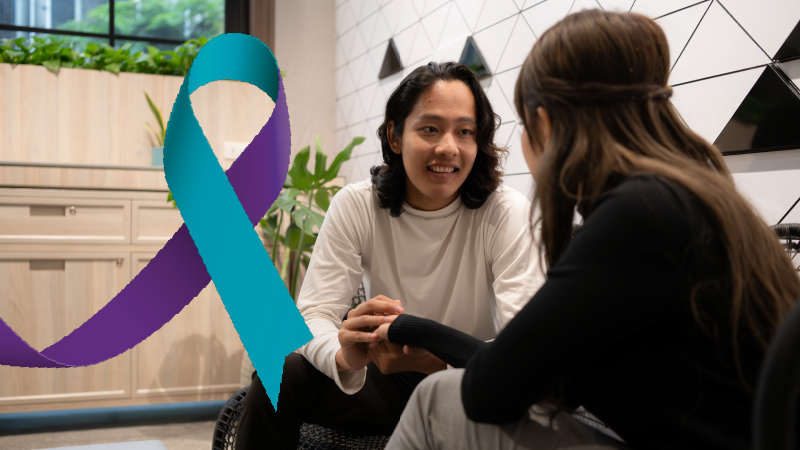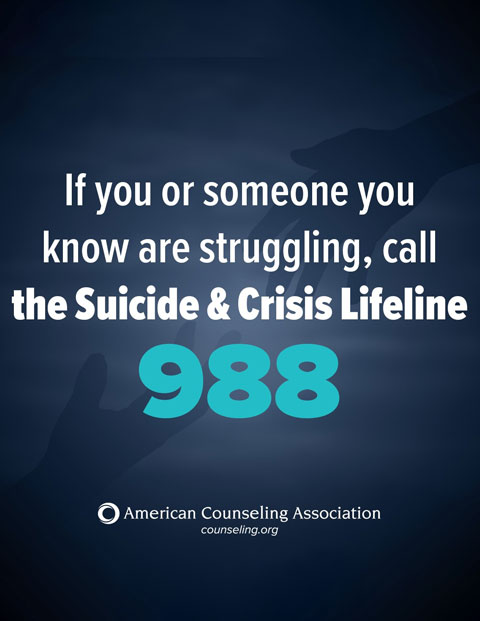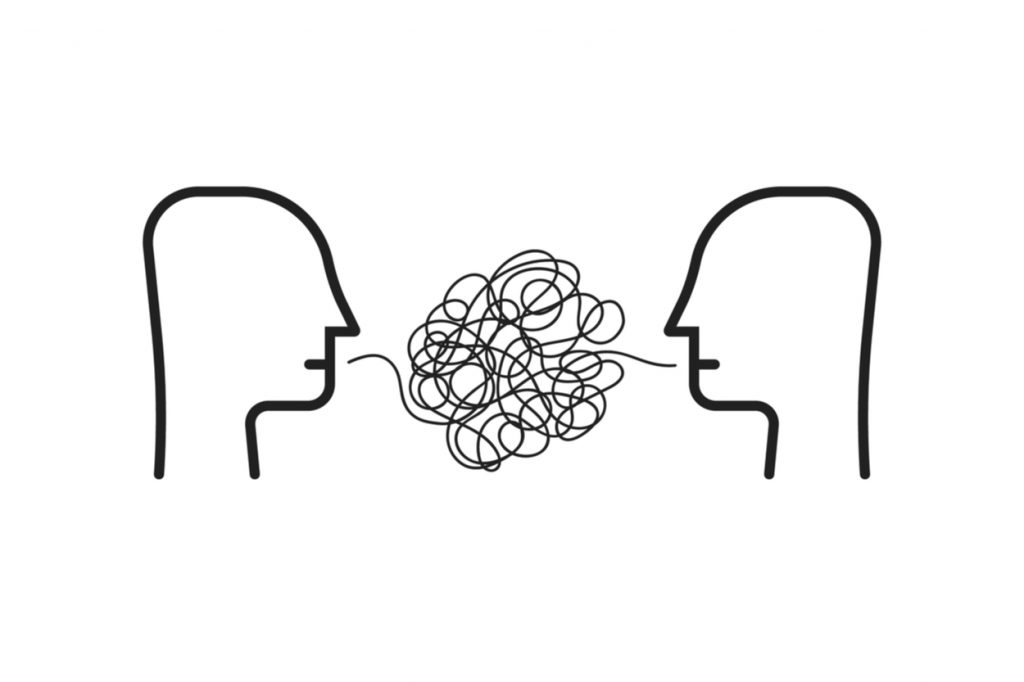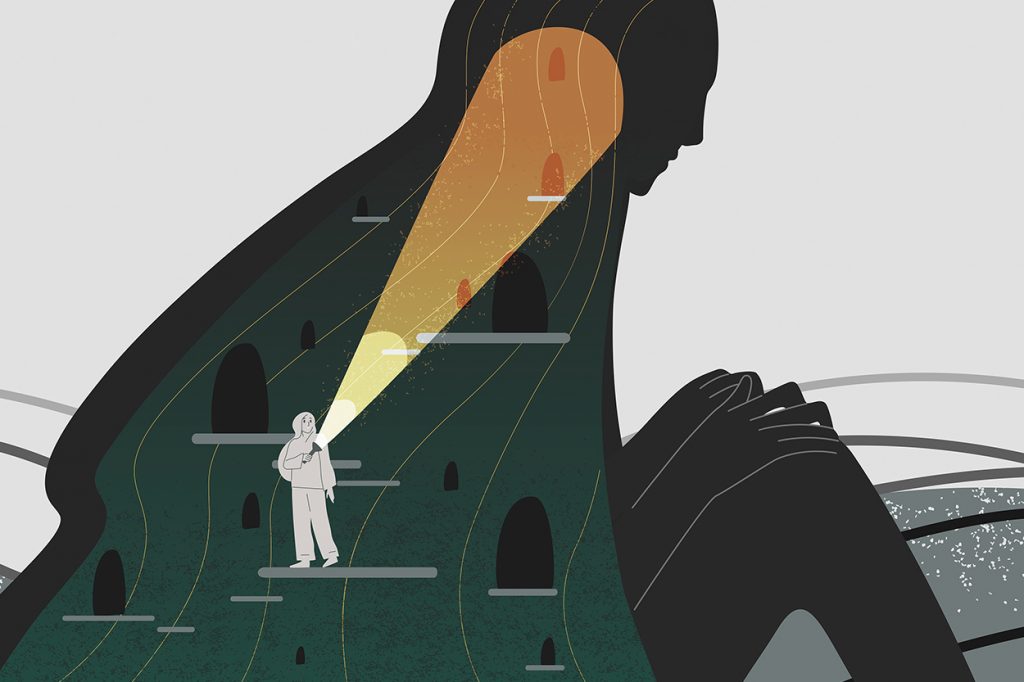
Suicide affects all ages and groups
Throughout the month of September, mental health organizations around the country recognize Suicide Prevention Month. However, working together to develop our collective understanding and awareness of suicide in order to prevent it is something we need to be doing every day. Talking to a counselor about any questions you have about how to help support others or how to get help for yourself is a great place to start.

Call or Text 988
The 988 Lifeline is a suicide and crisis lifeline, which uses a network of 200+ local crisis centers to connect people with 24/7 free and confidential support.
SUICIDE RESOURCESCrisis Center Information
In addition to the 988 Suicide and Crisis Lifeline, the following resources are available if you, or someone you know, need help:
- Veterans Crisis Line: 1-800-273-8255, press Option 1
- Trans Lifeline: 1-877-565-8860 (U.S.) or 1-877-330-6366 (Canada) The Trans Lifeline’s Hotline is a peer-support service for trans and questioning individuals in crisis. All operators are trans-identified.
- Trevor Lifeline: 1-866-488-7386 The only national 24/7 crisis intervention and suicide prevention lifeline for LGBTQ young people under 25.
- TrevorText: A free, confidential, secure service in which LGBTQ young people can text a trained Trevor counselor for support and crisis intervention, available Monday–Friday from 3–10pm ET / Noon–7pm PT by texting START to 678678.
- Crisis Text Line: Crisis Text Line is a crisis-intervention hotline that conducts conversations exclusively by text message. Trained crisis counselors are available 24 hours a day.
- Disaster Distress Helpline: 1-800-985-5990 - SAMHSA’s Disaster Distress Helpline provides 24/7 crisis counseling to people experiencing emotional distress related to natural or human-caused disasters.
- Mental Health - Warm Lines: Warm lines are confidential, peer-run listening lines staffed by people who have experienced mental health conditions themselves.

Advocacy
How Counselors Can Advocate during Suicide Prevention Month
Related Articles from Counseling Today
General Public Resources from the Counseling Corner
Getting Help When Grief Doesn’t End
Losing a loved one is one of life’s most difficult experiences. Many of us will navigate the grieving process with the help of family, friends and community support. We allow ourselves to experience the pain of the loss, accept it, adjust to it and celebrate the time we shared with that person.
But everyone grieves at a different intensity and pace. When you’re grieving, you may wonder whether your emotions are a normal reaction to the loss or have become severe enough to require some professional help.
Some people face obstacles in healing emotionally after a loss. They may become stuck in their grief, mired in feelings of fear, helplessness, sadness and even anger. Some may want to remain in a state of grief, fearing memories of the deceased will otherwise fade.
People in bereavement may show signs of complicated grief, also known as prolonged grief. The Cleveland Clinic describes this type of grief as intense and debilitating and lasting beyond 12 months. An estimated 7%–10% of bereaved adults will experience a form of complicated grief, according to a 2021 study. They may manifest sleep disturbances, appetite changes, suicidal thinking, substance abuse and relationship difficulties. These symptoms can interfere with functioning at work or school.
A loved one’s death may occur suddenly as the result of, for example, an accident or suicide. The shock and sadness can overwhelm a survivor’s coping skills, leading to traumatic grief.
The Trauma Survivors Network lists the common symptoms of traumatic grief as:
- Being preoccupied with the deceased
- Experiencing pain in the same area as the deceased
- Having upsetting memories
- Feeling that life is empty
- Longing for the person
- Hearing the voice of the person who died or “seeing” the person
- Being drawn to places and things associated with the deceased
- Experiencing disbelief or anger about the death
- Thinking it is unfair to live when this person died
- Feeling stunned or dazed
- Being envious of others
- Feeling lonely most of the time
- Having difficulty caring about or trusting others
In its harshest forms, grief can lead to a variety of psychiatric conditions. A study involving 206 individuals experiencing prolonged grief found that 55% were diagnosed with major depressive disorder, 48% with PTSD and 62% with anxiety disorders.
Children may act differently than adults when grieving a loss. According to the American Academy of Child and Adolescent Psychiatry, children may exhibit symptoms such as:
- An extended period of depression in which the child loses interest in daily activities and events
- Inability to sleep, loss of appetite, prolonged fear of being alone
- Acting much younger for an extended period
- Excessively imitating the dead person
- Believing they are talking to or seeing the deceased family member for an extended period of time
- Repeated statements of wanting to join the dead person
- Withdrawal from friends
- Sharp drop in school performance or refusal to attend school
If you or your family have been struggling to overcome the loss of loved one, a counselor can help process your grief so you can move forward in your life. Counseling can help you understand the impact of the loss, learn to honor and celebrate the person you’ve lost without trauma or impairment. Counselors are also trained to understand and address the developmental, cultural, gender, and spiritual influences on grief, to provide you with the care that’s appropriate for you.







